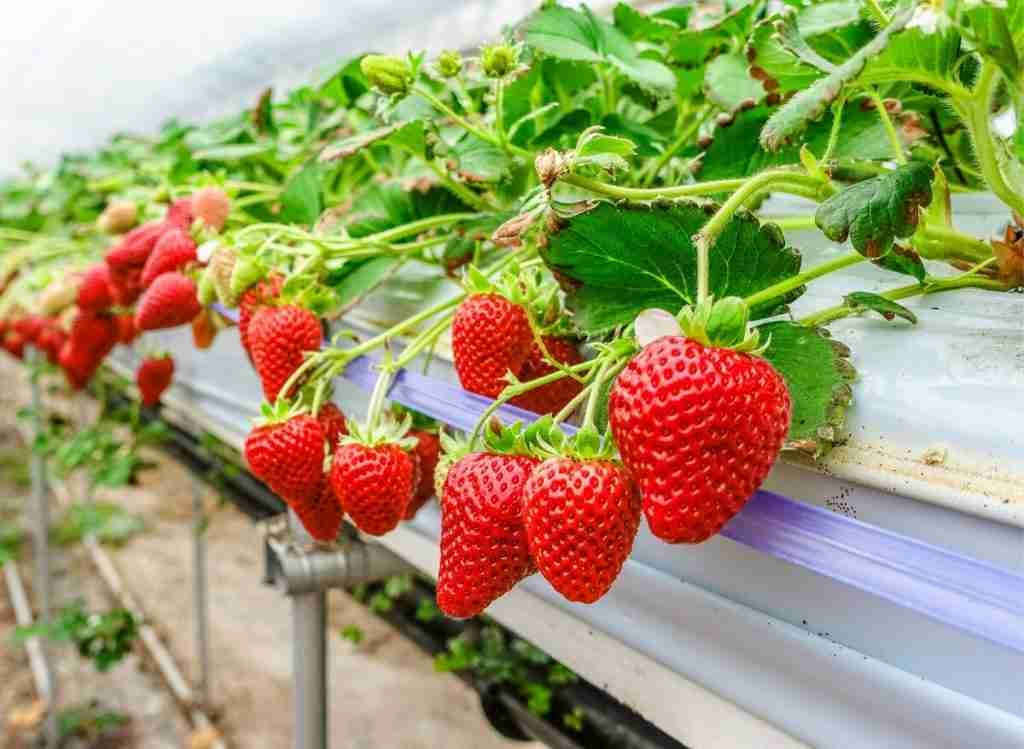This post contains affiliate links.

Like soil gardening, hydroponics has excellent advantages; you don’t have to weed or “water” it. And if you grow inside, there will not be any bugs to deal with. However, is hydroponics worth it?
Most people get into hydroponics as a hobby. As a hobby, hydroponics is an excellent way to learn more about plants. The investment costs can change depending on how much you are willing or need to invest. If you want to try the cheapest way to do hydroponics, it would be to do the Kratky method.
With the proper lighting and setup, including costs for a good pump, waterproof liners, chemicals, lighting systems, and the materials to make frames, you will get excellent yields once you get the basics worked out. There will be a learning curve. There is also the cost of electricity. If you love growing your food, hydroponics is priceless.
Also, depending on where you have settled, if you live in a desert region with 100% arid but have to grow vegetables, hydroponics would be an excellent option.
Why Hydroponic Gardening?
By 2025, half of the world’s population will live in water-stressed areas, according to a 2019 report by the World Health Organization. And only 71% of the people worldwide used a safely-managed water drinking service. With climate change and the rise of the world population, developing new strategies to manage our resources better is required.
And a recirculating hydroponic method can conserve up to 80% water compared to soil gardening. As a result, the increase in hydroponic growth has done wonders for agriculture, especially within urban centers with high demand.
Hydroponics is a system of growing plants without soil that uses a mineral-based nutrient solution to give plants what they need to grow successfully (hence the word ‘hydro.’). Since the plant’s roots directly receive the nutrients necessary for its growth, it can focus more on developing and producing fruit rather than expanding its root system to reach its needs.
In soil gardening, plant roots must search for nutrients; that is why typically, a soil-based plant has a much more extensive root system than a hydroponic one. Hydroponics delivers the nutrients directly to the root system in almost surgical quantities. This method ensures that plants receive the correct amount of nutrition at the right times, allowing them to spend it.
See also: How to Grow Plant – A Quick Guide Before you Get Into Gardening
Why is Hydroponics Bad?
The main disadvantages of hydroponic gardens are high costs, maintenance, the risk of plant disease, and energy shortage.
- Setup Cost – High cost is one of the most significant disadvantages of hydroponic gardening. Since you will need to purchase all the necessary equipment to get started, the hydroponics system setup cost is higher than soil gardening.
- Maintenance Requirements – Unlike soil gardens, a hydroponic garden needs regular care. The time you spend caring for hydroponics depends on whether you use the active or the passive approach.
- Risk for Plant Disease – Many people think that hydroponic plants are free from diseases. Since most plants share the same solution, water-borne diseases can spread quickly throughout your garden. And the chances of contamination between plants are higher with hydroponic than with soil gardens.
- Energy Shortage – One of the disadvantages of hydroponics is its fragility in energy shortage. One power shortage can make all your crops die in a heartbeat. However, you can just build them on an independent network with their own solar panels.
See also: Here’s How to Start a Garden From Scratch
Hydroponic Vs. Soil Pros And Cons
The most significant hydroponic vs. soil pros and cons:
- Reduced seed to harvest time because there is less root growth needed on the plants since they directly access the nutrients in the water.
- There is more aeration; perhaps this doesn’t apply to the Kratky method without an aeration pump.
- Less need for pesticides and less rot because of the lack of soil. With a hydroponics garden, pest issues drop.
- Hydroponics is an excellent way to get more plant density with fewer issues outside – Most outdoor tomatoes are grown in hydroponics commercially as the yield increases.
- Hydroponics is excellent on colder maps or desert maps. If you live in a desert, extreme desert, ice sheet, or tundra, you can slowly grow potatoes in gravel.
- Hydroponic gardening requires less water than soil gardening because it is a closed system with meaningless evaporation and water wastage.
- Hydroponics helps you keep your plant and harvest at a measured pace rather than going through crazy planting or harvesting rushes where your colonists end up swamped with work.
- Hydroponics include better plant growth than soil gardening, with about 25% faster growth than soil. Additionally, plants in hydroponic gardening generally produce up to 30% more than in soil gardening.
- Hydroponics is excellent for accessing crops you can’t grow in an area or at least can’t grow well.
- Hydroponics requires tons of steel and many components to build. The only time hydroponics are really preferable is if you don’t have decent soil or build the farm inside a mountain, which is not unlikely if you make mountain bases.
- Another advantage of hydroponics is to “set it and forget it.” You can set a watering schedule you desire, tweak nutrients far easier than in soil, and place it wherever you want, given you have proper lighting. You can make a basic setup with.
See also: 13 House Plants Benefits you Need to Know
Is Hydroponics Cheaper Than Soil?
Hydroponic gardening is cheaper than soil gardening; however, it requires an initial investment. You can expect to notice quicker plant growth and better plant production than plants in regular soil gardening. It is also relatively more expensive to run a hydroponic system than soil gardening since you will need electricity and maintenance costs to keep the systems running throughout the year.
Hydroponic gardening requires set-up costs, including pumps, tanks, controls for the system, and lighting equipment, which may easily cost you several hundred dollars for every square foot of the growing area.
However, there are also outdoor hydroponics where you can use the sun as your light source, and if you add a solar pump with a little battery for nighttime feeds, it won’t cost you anything to run.
However, hydroponic gardening is not expensive if you use the Kratky method. All you need is a container, nutrients, water, and a plant or seed. You can also use containers you already have, such as Mason jars or juice jugs. And if you save seeds from previous crops, hydroponic gardening is even cheaper.
While learning to grow plants in your garden is relatively easy, succeeding with hydroponics significantly requires more knowledge and experience. You will need to meet your plant’s accurate needs for water and nutrition and quickly identify and control any bugs, which can spread between plants much more rapidly in a hydroponic system.
Besides, you will need to know how to maintain the equipment and make basic repairs to the components.
See also: How To Deal With Too Much Iron In Your Garden’s Soil: A Guide
Is Hydroponics Good For The Environment?
Hydroponics is good for the environment as the water recirculates and does not evaporate as readily or is absorbed into the ground quickly. Also, according to the World Food Program, hydroponics uses up to 90 % less water and 75 % less space while producing crops at growth rates 100 % faster than soil agriculture.
Furthermore, hydroponics is an eco-friendly gardening solution for several reasons. Hydroponics saves both space and water. With Hydroponics, you can grow your plants closely together or even vertically, and this technique uses up to 90 percent less water, suggests the University of Nevada, Reno Extension.
Hydroponics repeatedly recycles water to deliver nutrients to the plants, so there is far less water loss. Also, most hydroponic systems do not require pesticides. Most of the time, pesticides have adverse health effects. They can also hurt your local ecosystem by damaging soil, killing nearby plant life, and even endangering animals, including birds friendly worms.
Moreover, hydroponics does not require topsoil, so you will not risk topsoil erosion. Generally, land used for gardening requires constant tilling; over time, the land becomes unusable. Hydroponic gardening enables you to preserve that valuable land. And remember always to read the label when purchasing hydroponic nutrients.
Hydroponics produces harvests higher or equal to soil gardening, according to the University of Massachusetts Amherst.
See also: How To Repot Overgrown Succulents Like A Pro: A Quick Guide
Is Hydroponics Worth It?
Hydroponics is worth it if you enjoy it or think you would enjoy it. Most people get into hydroponics as a hobby. As a hobby, hydroponics is a great way to experiment and learn more about plants. Hydroponics is also particularly beneficial for commercial growers because plants grow and produce fruits faster than those grown via soil gardening.
With hydroponic systems, you can use the nutrient film technique to provide plenty of water, nutrients, and oxygen to your plants, according to Purdue University Extension.
If you live in flat open land and have infinite space to expand your fields, soil gardening is better. If you, however, do not have infinite room to grow and have access to lots of power from geothermal, then hydroponics is a better choice.
Tips for Beginner Starting Hydroponics Garden:
- When starting your hydroponics garden, do not cut corners. You will end up buying something more expensive in the end when you get frustrated with your results.
- Start with lettuce because it grows fast with minimal light input.
What to read next:
- 22 Disadvantages and Advantages of Hydroponics (What You Should Know)
- 16 Best Vegetable Gardening Books For Beginners
- Here’s How to Make Money Gardening
Final Thoughts
Overall, hydroponics is worth it and can save the environment and solve food shortages worldwide. Hydroponics technically grow faster but are subject to power shortages.
Also, hydroponics has the most excellent production density and speed available, and you can put them anywhere, including beside your kitchen, your living room, and your freezer, to minimize hauling. Also, you can get fast growth and excellent yields on some things with hydroponics.



